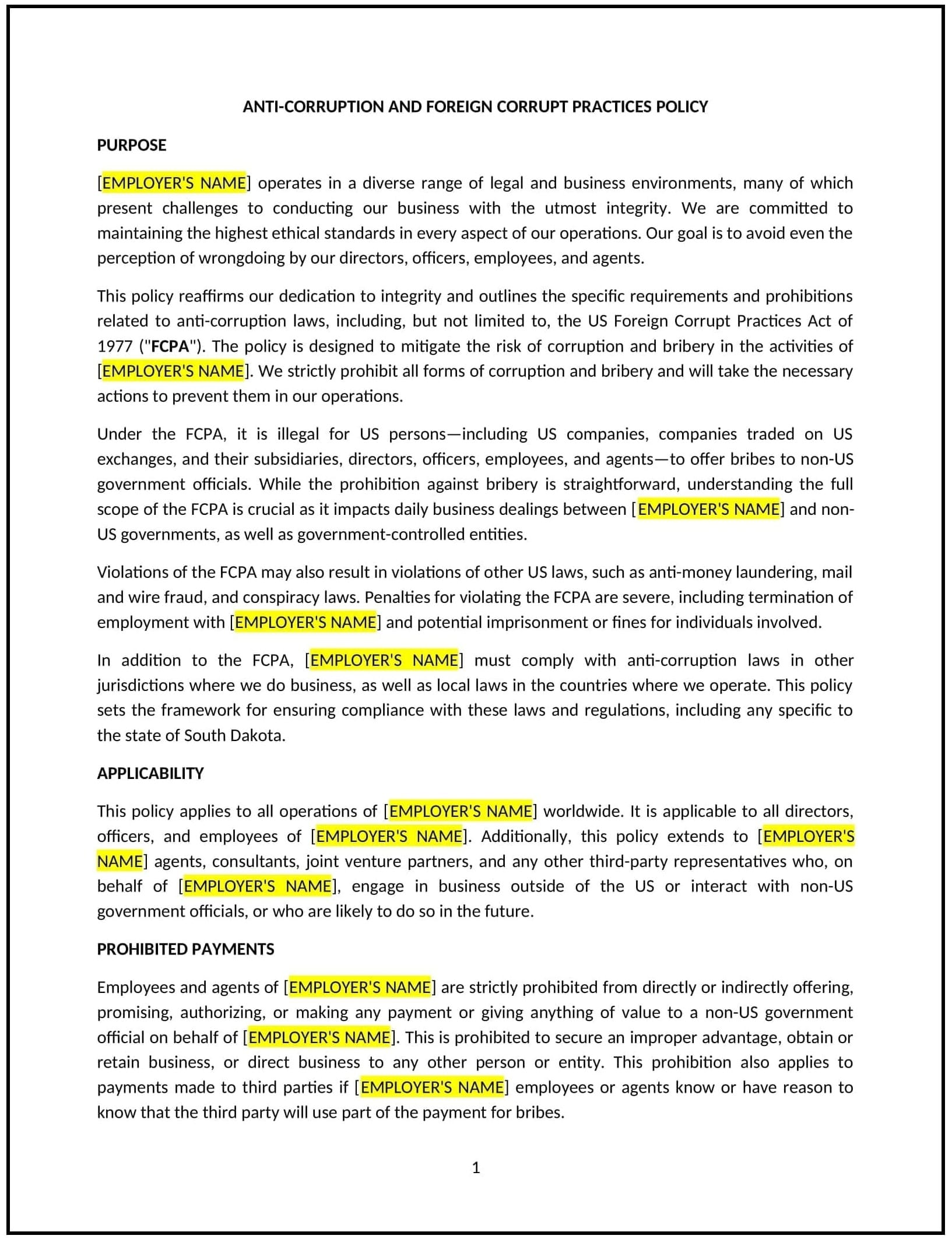Anti-corruption and foreign corrupt practices policy (South Dakota): Free template
Got contracts to review? While you're here for policies, let Cobrief make contract review effortless—start your free review now.

Customize this template for free
Anti-corruption and foreign corrupt practices policy (South Dakota)
This anti-corruption and foreign corrupt practices policy is designed to help South Dakota businesses prevent bribery, corruption, and unethical behavior in their operations. It outlines procedures for identifying, reporting, and addressing potential violations.
By adopting this policy, businesses can promote ethical practices, reduce risks, and align with general best practices for corporate integrity.
How to use this anti-corruption and foreign corrupt practices policy (South Dakota)
- Define prohibited behavior: Explain what constitutes bribery, corruption, or unethical practices, such as offering or accepting improper payments.
- Establish reporting procedures: Provide clear steps for employees to report suspected violations, including anonymous reporting options.
- Outline response protocols: Specify how the business will investigate and address reported violations, including disciplinary actions.
- Train employees: Educate employees on recognizing and avoiding corrupt practices, as well as reporting procedures.
- Implement preventive measures: Include strategies such as due diligence on third-party partners and regular audits.
- Review and update: Assess the policy annually to ensure it aligns with evolving business needs and ethical standards.
Benefits of using this anti-corruption and foreign corrupt practices policy (South Dakota)
This policy offers several advantages for South Dakota businesses:
- Promotes ethical practices: Encourages a culture of integrity and transparency in business operations.
- Reduces risks: Helps prevent legal, financial, and reputational risks associated with corruption.
- Enhances trust: Demonstrates a commitment to ethical behavior and corporate responsibility.
- Supports compliance: Aligns with general best practices for preventing bribery and corruption.
- Supports reputation: Positions the business as a trustworthy and ethical employer in the community.
Tips for using this anti-corruption and foreign corrupt practices policy (South Dakota)
- Communicate the policy: Share the policy with employees and include it in the employee handbook.
- Provide training: Educate employees and managers on recognizing and avoiding corrupt practices.
- Monitor compliance: Regularly review reported incidents to ensure adherence to the policy.
- Address issues promptly: Take immediate action to investigate and resolve reported violations.
- Update regularly: Assess the policy annually to ensure it aligns with evolving business needs and ethical standards.